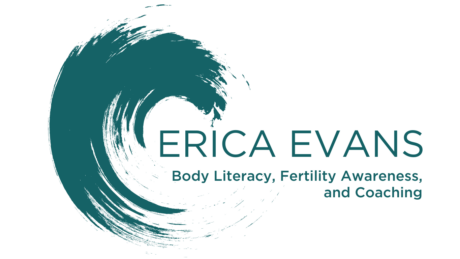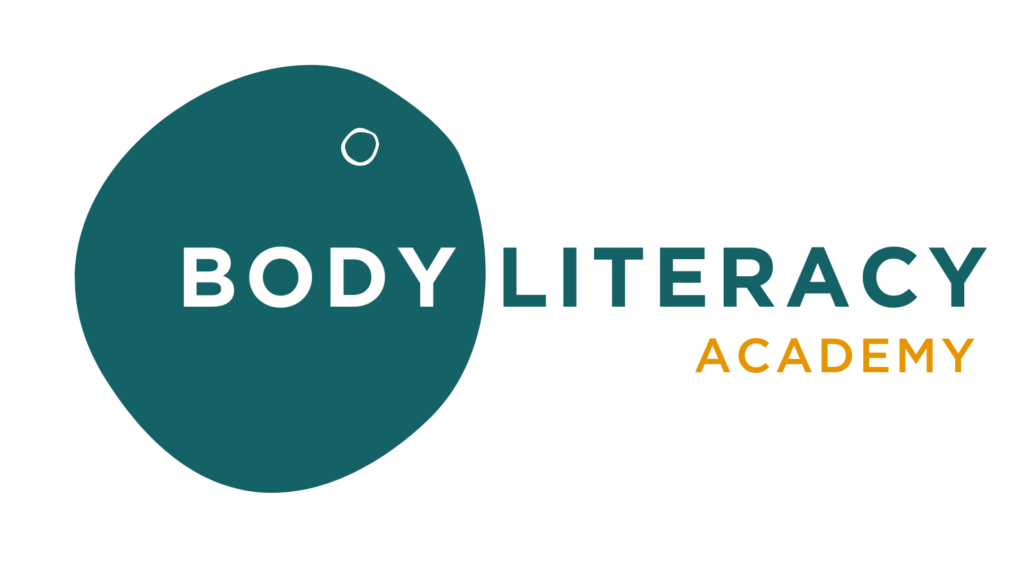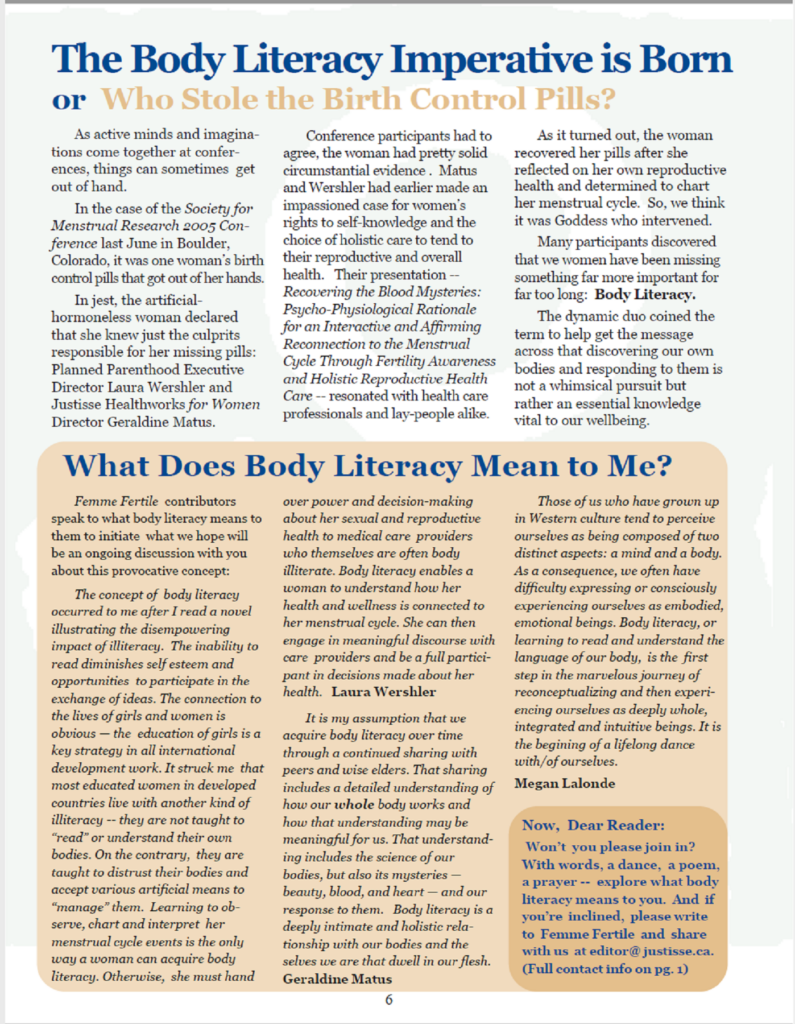Rewriting the Script: Introducing BodyTalk! A Preteen Period Party
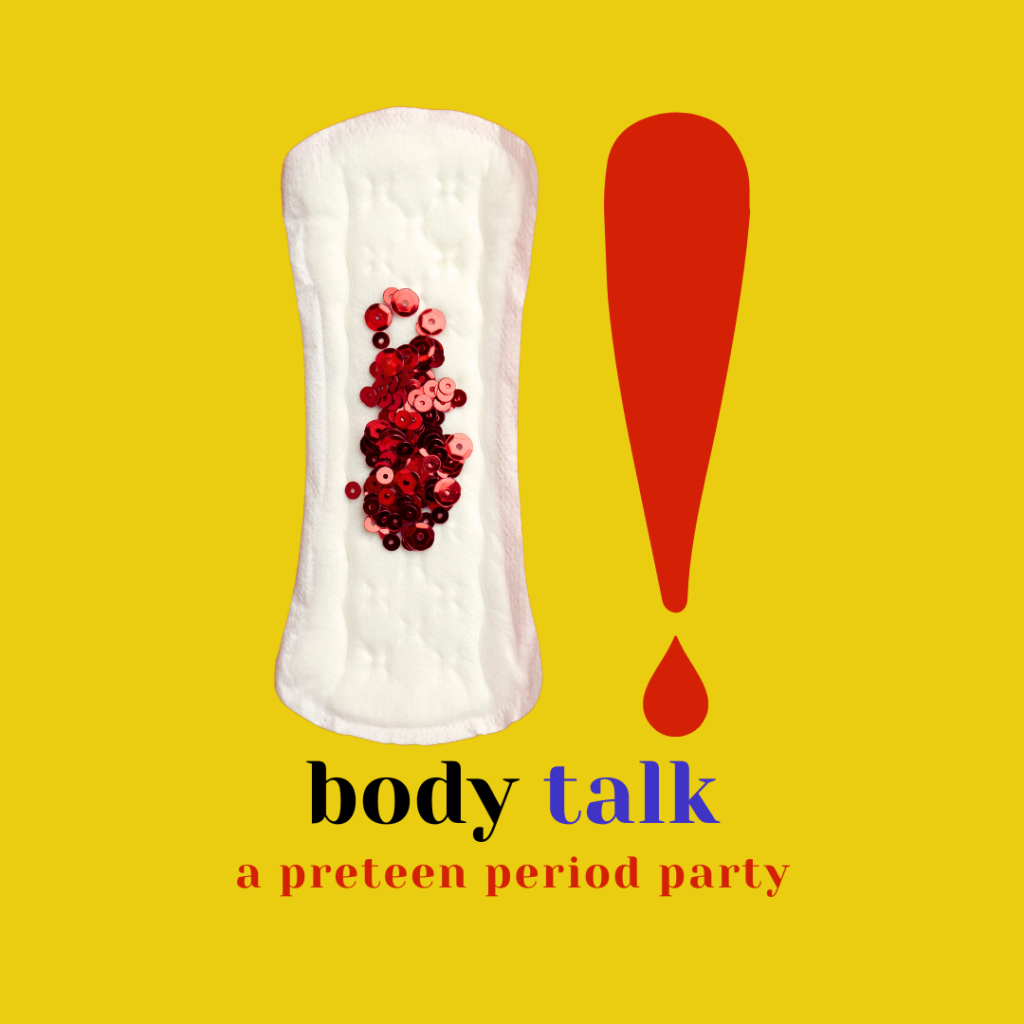
Ever wished you had a better understanding of your body when you were younger? Wish you could give your preteen the gift of body literacy you wish you’d had? Feel nervous about how to do it, but you know it’s important?! If you’re in the Greater Ithaca area, now’s your chance! Fellow FAM Educator Darcie Black and I are hosting BodyTalk! A Preteen Period Party, and we’d love for you and your preteen to join us. Registration closes in TWO days, and there are still a few spots left!
Let’s talk about why this workshop exists and why it matters so much to me.
When I was a preteen, my mom left a puberty book on my bed—it might have been The Care and Keeping of You, but honestly, I can’t remember. The moment I saw it, I was mortified. I flung it into the furthest corner of my room, treating it like it carried a contagious disease called “Puberty.” At some point, curiosity won, and I thumbed through its pages, but the embarrassment lingered.
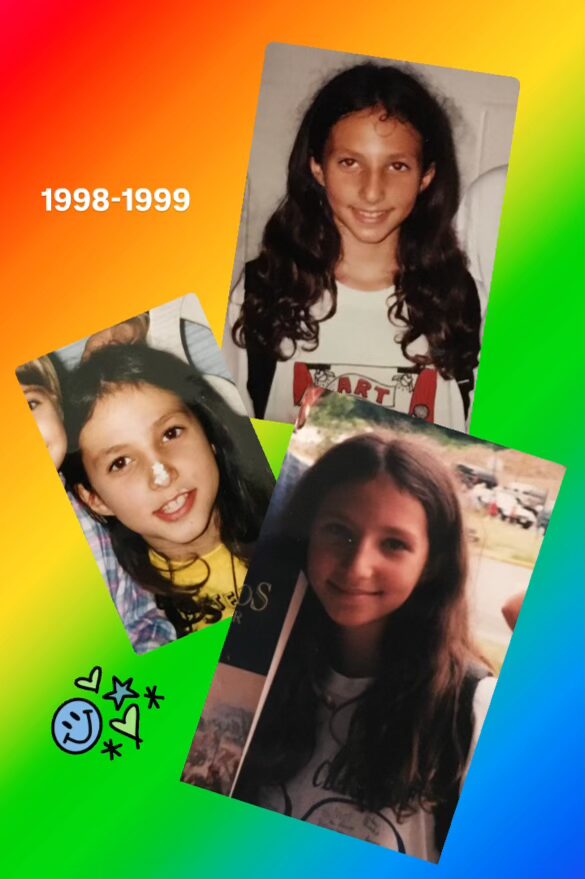
Then there was the infamous “Mother/Daughter Night” in 5th grade. The school nurse gave a talk in the elementary school cafetorium, about puberty and the menstrual cycle. I was even MORE mortified. Sitting in that folding chair, staring at the floor, with my hair acting as makeshift blinders, among rows of other preteens, our parents in rows behind us, I wanted to disappear. Why was I so resistant? Maybe it was societal messaging about bodies and puberty being shameful. Maybe it was the clandestine “after-dark” setting that made the whole thing feel like a secret we weren’t supposed to talk about. Whatever the reason, I was not ready.
But something shifted. By high school, I’d done a 180. I dreamed of one day educating others about their bodies and reproductive health. At the time, I didn’t even know about body literacy and fertility awareness. I just knew how vital it was for people to have accurate, empowering information about their bodies.
Fast forward a quarter of a century, and here I am—working to rewrite the script on how we talk about bodies and menstruation.
BodyTalk is not your typical “puberty talk.” First off, it’s daylight. It’s fun. It’s open and welcoming. Preteens and their parents are invited to circle up, learn together, and celebrate what it means to grow and change. This workshop is packed with hands-on activities, including:
- Drawing, puzzles, and games to understand anatomy and how the way we might feel through a cycle changes.
- Learning about “red flow” and “white flow” in a clear, approachable way.
- Exploring different period products and experimenting with absorbency using cranberry juice.
- And more!
We’re taking the taboo out of periods, creating an inclusive and accessible environment, and promoting a body-positive approach. This is a space where you can connect with your preteen in a meaningful and empowering way.
This workshop is also a response to what I’ve heard time and time again from my adult clients: their first reaction to learning about their bodies as adults is often anger and rage that no one taught them these things when they were younger. We’re changing that narrative for the next generation.
This is a welcoming space for preteens ages 8–12, whether they’ve started menstruating or not. And parents? You’re likely going to learn something new, too!
Let’s normalize these conversations. Let’s shine a light on what’s often shrouded in secrecy. Let’s give our kids the tools they need to approach their bodies with confidence and curiosity. Most importantly, let’s make it fun.
Spaces are filling up fast, and registration closes in just two days. Don’t miss your chance to join us for BodyTalk: A Preteen Period Party. Together, we’re rewriting the narrative and creating a more empowered future—one period party at a time.
